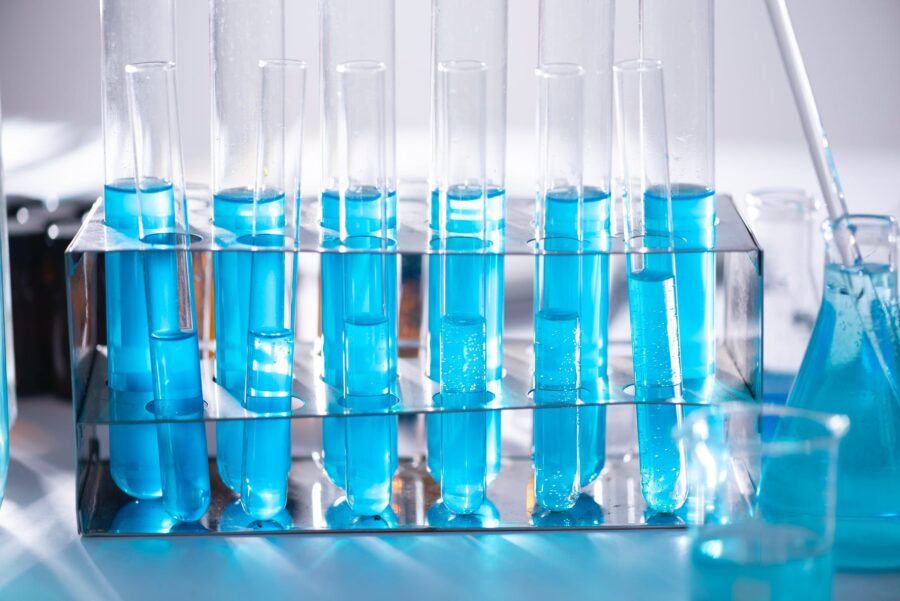
WITH the announcement by the Health Minister this week that the employment of 160,000 rapid antigen test kits is a “game-changer” in the country’s fight against Covid-19, more questions have arisen about testing for Covid-19 in Trinidad and Tobago.
There have been many reports of individuals being swabbed and weeks later they are yet to receive their results.
This has led many to being uncomfortable and uneasy while in home self-quarantine, a situation that is not rather conducive to one’s health and wellbeing.

The delay in issuing reports seems to be because of a now overwhelmed system of contact tracing, testing and reporting that has not been expanded to accommodate the explosion of cases.
How will the introduction of antigen testing then help the situation?
A lack of information has led to individuals alluding to a political agenda that has done nothing but further confuse the population.
In this article I will attempt to look at what tests are possible, how they are done and the advantages and disadvantages of each.

To understand this, you will have to be familiar with the structure of the Covid-19 virus. The Novel Coronavirus, like all other coronaviruses, consists of a capsule of protein and fat that encapsules the viral genetic material.
Since our very first case here in TT, the Polymerase Chain Reaction (PCR) test has been the mainstay laboratory investigation for testing and diagnosing cases.
This test uses specimens obtained by swabbing respiratory secretions in the nose and throat. These specimens are collected and sent for testing by qualified personnel.
The PCR test destroys the viral protein-fat capsule to expose its genetic material. It then amplifies this material by exponentially replicating it millions of times.
This genetic material, now detectable, is compared to the known viral genome (genetic code) and if present, special immunofluorescent probes tag the sample as positive.
Because PCR testing is generally quite accurate and a positive result can confirm the presence of viral infection, it is the ideal diagnostic test to be used to identify cases.
It may however give a false negative in very few cases depending on the site of the swab, the sampling procedure or the stage of the infection. These may result in the viral load not being high enough to be detected.
Even though PCR testing is the most accurate it has its disadvantages.
It requires:
- highly standardised laboratories,
- well trained personnel,
- expensive instruments and reagents,
- A relatively long period to get results
It is also quite costly.
These limitations have presented issues in countries where such resources and funding may not be available. In TT, we are now quite limited with the explosion of cases.
In May of this year however, there has been a breakthrough in developing an antigen test for Covid-19.
An antigen is essentially the uniquely shaped proteins that exist on the protein-fat viral capsule. Just like the viral genetic material, these antigens are detectable in upper respiratory secretions and samples can be obtained in the same way for PCR testing.

Once the sample is obtained, it is processed with reagents that breaks the viral capsule and expose the viral proteins which are the antigens that are detected by this specific test.
The sample is applied to a testing strip, if these proteins are present, they are picked up by immunofluorescent antibodies that tags the test as positive.
PCR is the goal standard for testing for Covid-19 as it is the most accurate.
However, antigen testing has some advantages. Compared to PCR, it is much cheaper and yield results in a much quicker time. In addition, the technical skill required for PCR is not necessary for antigen testing as most steps in the process of testing is automated in a single device.
Much like those testing positive for PCR, they can be quickly isolated to stop the chain of spread. With the lower cost it means that more tests can be made available and results yielded in a quicker time.

This makes antigen testing sound like a better alternative to PCR testing.
However, we must remember that the results of antigen testing are not as sensitive as PCR and so is less accurate and there may be a higher rate of false negatives.
So, this test may miss more people who have the virus as compared to PCR testing. Thus, a negative antigen test will not completely rule out Covid-19.
But, in the context of a history of no symptoms or no contact with an infected individual, having a negative test means the likelihood of being infected is very low.
These individuals can be confident that they do not have the virus given the odds.
Those however that have a greater likelihood of being infected by having a history of symptoms or being in contacted with an infected individual will require a follow up PCR test to further rule out Covid-19 infection.

Thus, antigen testing can prove to be an extremely valuable diagnostic tool for Covid-19 infection especially in our current context as it is cost effective and has an acceptable level of accuracy within a clinical context.
The third test has been a point of controversy from earlier on during the pandemic.
It is the rapid antibody testing. This has been in the national conversation since Covid-19 has been in TT as it was possible to source for our country.
Where as the previous two tests detect the presence of parts of the virus structure.
Antibody testing tests for antibodies the body produces by the body’s immune system in response to the presence of the virus.
Antibodies are proteins produced by the immune system that specifically binds to the viral protein on the viral protein-fat capsule tagging them for white blood cells to destroy them. Antibodies are produced in blood.

Therefore, a blood sample is required for this test. Antibodies, however, are gradually detectable only after seven to ten days onset of symptoms.
Thus, in the earlier stage of infection, when the patient is likely asymptomatic, the antibody’s concentration is too low to be detected. This is called the window period. This period varies in individuals.
Even though the antibody test is much cheaper, requires far less technical skill and yields results in a much quicker time than PCR, because of the window period when an infected individual will test negative, the test is very limited as a diagnostic test for Covid-19.

If it is considered in a context of very scarce resources, it must be interpreted by physicians combining clinical symptoms, PCR testing and imaging examinations.
This is why the Ministry of Health has been very weary of granting approval for such testing in the private healthcare sector. The World Health Organization recommends that the antibody test should not be used as the sole basis to diagnose or exclude Covid-19 infection.
Indeed, the introduction of antigen testing is good news for TT as it makes our ability to test more effective and would give us a the potential to control this pandemic in our country.
Dr Visham Bhimull is a Primary Care Physician MBBS (UWI) Diploma Family Medicine (UWI)
![]()











